14 things to know about Nigerian
Nigeria is Africa's most populous country, home to the world's second-largest film industry, and the centre of fashion, technology and creativity in Africa. Nigerians are known for their vibrant and friendly energy expressed through diverse creative expressions.
It has a mix of distinct areas, including deserts, plains, swamps, mountains and wet forests. The two largest and most important rivers in the country, the Niger River and the Benue River, meet in a town called Lokoja in Koji State, and together these two rivers form one of the largest Niger Delta, the third largest on earth. The plains and savannah cover much of Nigeria, and its highest mountain is the 2,491-meter-high Chapel Valley, which is located in the Jasahaka Gomti National Park in the eastern part of Nigeria. In this article we present to the honorable reader 14 things to know about this unique country.
Recommend
1- A land with more than 200 million smiles:
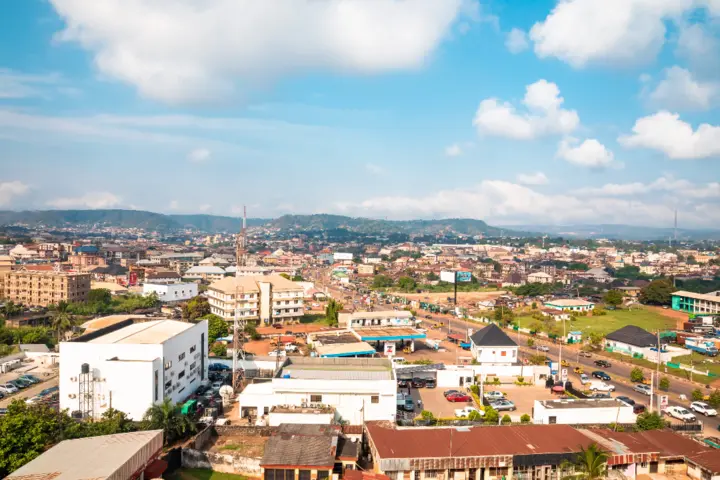
With more than 200 million people, Nigeria is one of the largest youth populations and is the sixth most populous country in the world. In Nigeria, it is necessary to smile when you see someone looking at you, it is necessary to greet and make them happy, it is necessary to make everyone feel at home, it is necessary to scream whenever the light comes on, it is necessary to smile and be happy even if the whole world hates you.
2- Unparalleled cultural splendor:
Nigeria is a multinational country, inhabited by more than 250 ethnic groups, the three largest of which are the Hausa, Igbo and Yoruba. These ethnic groups speak more than 500 different languages, have diverse cultures, and display unique art. A rich selection of fashion styles and festivals exist across different tribes.
3- Food:
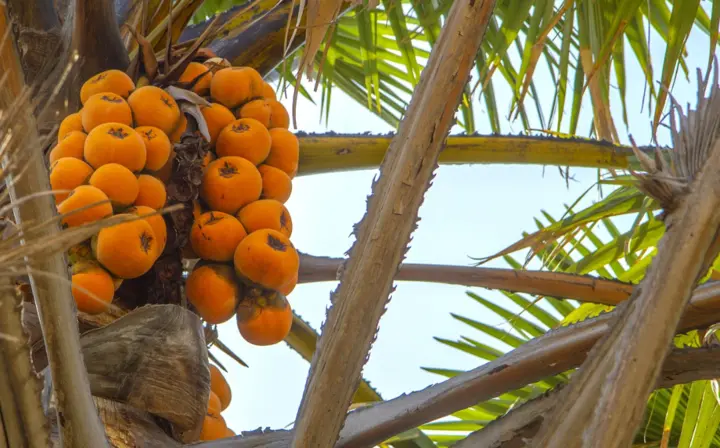
In Nigeria there are different types of food and dishes. And they come in different tastes. Each tribe has its own original food. What makes Nigerian unique.
4- Home to the oldest dyeing pit in Africa:
The Kovar Mata dyeing pit was founded in Kano in 1498 and is the oldest in Africa. It continues to maintain the production process of dyeing and traditional dyes used in northern Nigeria. The methods and skills used are outdated, passed down from generation to generation.
5- The first Nobel laureate in Africa:
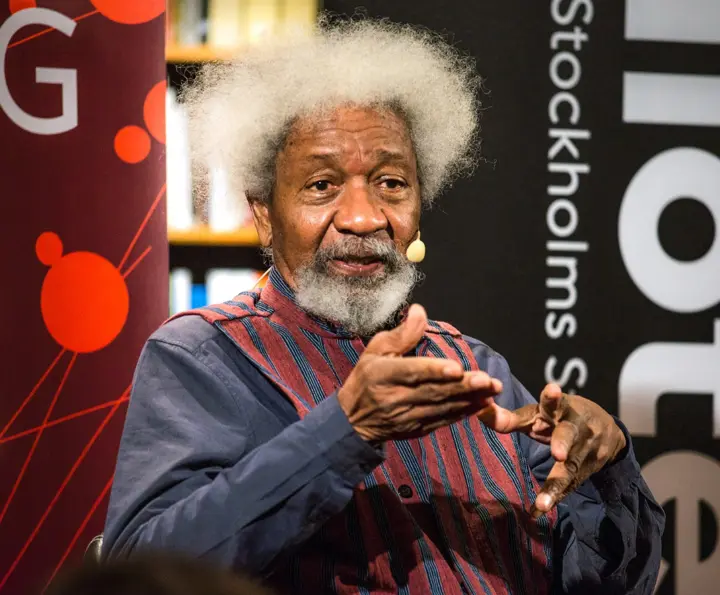
In 1986, Woley Soyinka was the first black African playwright to receive the Nobel Prize in Literature.
6- One of the largest butterfly variations in the world:
Nigerian is famous for its beautiful and diverse butterflies. Nigeria has an exceptional biodiversity and boasts an abundance of animals and plants. There are currently more than 1,000 documented species of butterflies, and new ones are still being discovered.
7- Two stunning UNESCO World Heritage Sites:
Nigeria has two prominent UNESCO World Heritage sites: the Sukkur Cultural Landscape in Adamawa and the sacred Osun Grove in Osun.
8- Nurturing artistic expressions through art:
From the Kingdom of Benin to contemporary art, Nigerian artists and craftsmen are unparalleled. Some well-known Nigerian art pioneers are Nike Davis-Okundai, Ben Inwu, and Bruce Onobrakbia.
9- A unique Nigerian spirit:

Nigerians are known to be intelligent and hardworking people, and their attitude to life is "I can do" and "I never say", which is complemented by a friendly and cooperative spirit.
10- The second largest film industry in the world and a pioneer in the music of Afropets
(Afrobeats):
Nigerian filmmaking "Nollywood" is the second largest film producer in the world. The country also continues to maintain its leading position with its music, which has played key roles in shaping Africa's music scene, as well as influencing contemporary world music. Artists like Wizkid, Porna Boy, and Davido are taking music to new levels.
11- The Economic Heart of Africa:
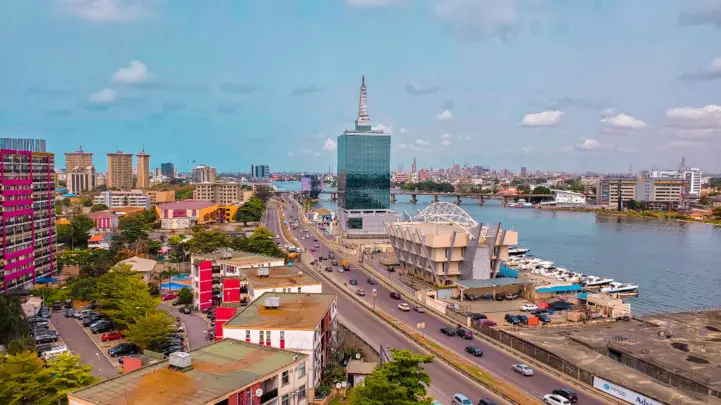
Nigeria boasts Africa's largest economy. It is expected to rank among the world's ten largest economies by 2050.
12- Africa's largest oil and gas producer:

Nigeria has an abundance of resources, including gas, with the continent's largest reserves of natural gas and oil, the country's main source of foreign currency. In addition, Nigeria is one of the most fortunate countries in other natural resources. It contains coal, iron, and kaolin, which are used in pharmaceutical products, in abundant quantities. Copper, gold, uranium, lead and many other metals are also found.
13- A flag symbolizing natural wealth and peace:
The Nigerian flag consists of three vertical bars of green, white and green. The two green stripes represent Nigeria's natural wealth, while the white stripe represents peace. It was designed in 1959 by Michael Taiyo Akinkonmi, and was officially adopted on 1 October 1960.
14- The coat of arms, which represents dignity, fertile soil, strength and national flower:

The Nigerian coat of arms features two white horses supporting a black shield, with a white "Y" shape extending across the middle of the shield. Above the shield there is a red eagle sitting on a green and white stripe placed on the shield. Below them is green grass, yellow flowers and a badge. White horses represent dignity, the shield represents the fertile soil of Nigeria, the eagle represents strength, and the green and white bands represent the fertile soil of Nigeria. The white "Y" on the black shield represents the Niger and Benue rivers. The yellow flower at the base is the Nigerian national flower, Kostus spectabilis, and the national emblem has been the national emblem of Nigeria since 1978, "Unity, Faith, Peace and Progress" (formerly "Peace, Unity and Freedom").
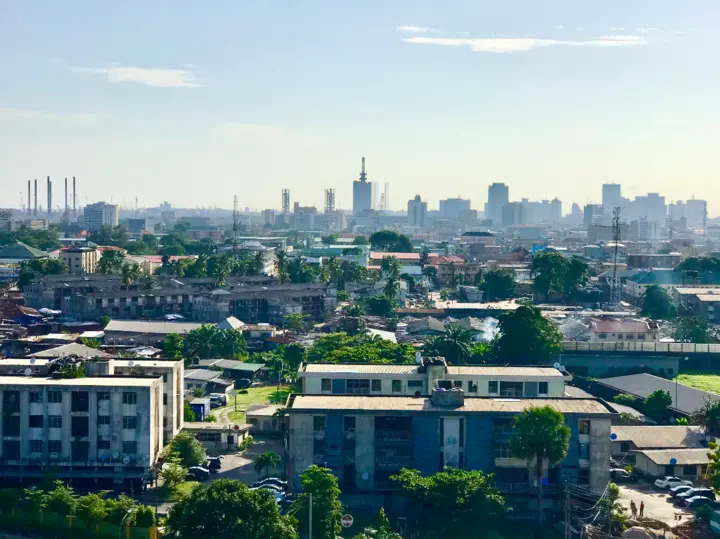
Nigeria is not only one of the largest economies in Africa, has a large consumer market, it is also a beautiful country with a civilized history, Nigerians are a hardworking and hospitable people. Their resilience in the face of difficulties proves that they will make their beloved country a force to be reckoned with.








